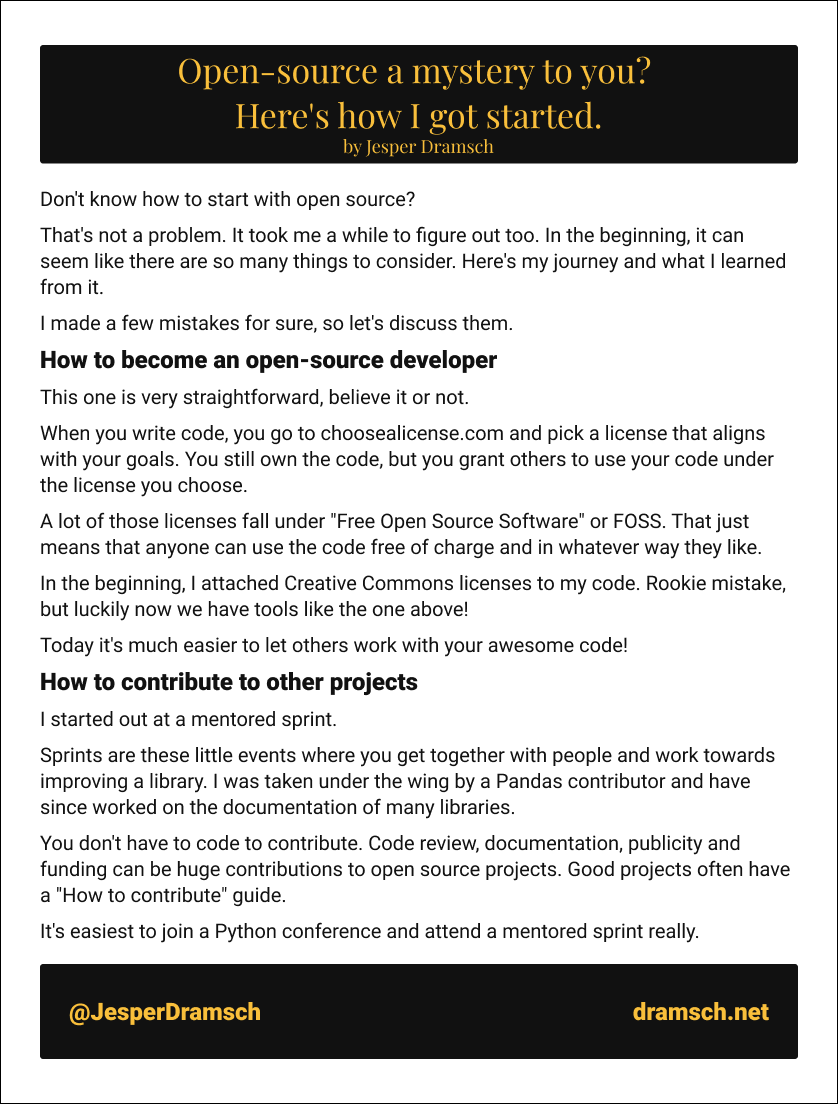Don't know how to start with open source?
That's not a problem. It took me a while to figure out too. In the beginning, it can seem like there are so many things to consider. Here's my journey and what I learned from it.
I made a few mistakes for sure, so let's discuss them.
How to become an open-source developer
This one is very straightforward, believe it or not.
When you write code, you go to choosealicense.com and pick a license that aligns with your goals. You still own the code, but you grant others to use your code under the license you choose.
A lot of those licenses fall under "Free Open Source Software" or FOSS. That just means that anyone can use the code free of charge and in whatever way they like.
In the beginning, I attached Creative Commons licenses to my code. Rookie mistake, but luckily now we have tools like the one above!
Today it's much easier to let others work with your awesome code!
How to contribute to other projects
I started out at a mentored sprint.
Sprints are these little events where you get together with people and work towards improving a library. I was taken under the wing by a Pandas contributor and have since worked on the documentation of many libraries.
You don't have to code to contribute. Code review, documentation, publicity and funding can be huge contributions to open source projects. Good projects often have a "How to contribute" guide.
It's easiest to join a Python conference and attend a mentored sprint really.

This atomic essay was part of the October 2021 #Ship30for30 cohort. A 30-day daily writing challenge by Dickie Bush and Nicolas Cole. Want to join the challenge?
